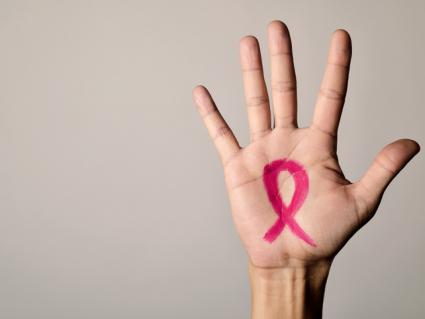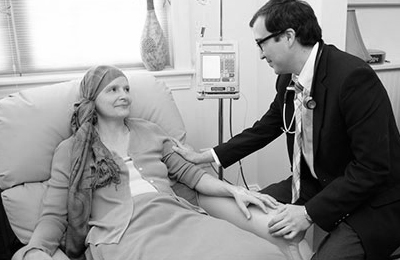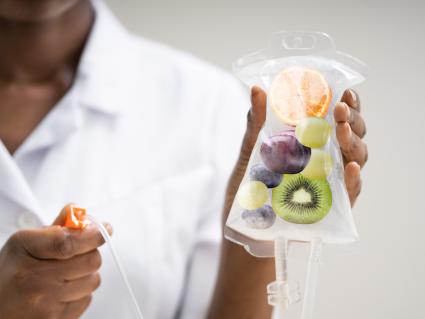Vitamin C: An Integrative Option for Breast Cancer

As many of you are probably already aware, October is breast cancer awareness month. Despite a decreased rate in breast cancer deaths from 53.8 per 100,000 in 2006 to 45.7 in 2016, breast cancer continues to remain the second leading cause of cancer deaths of women in the United States (CDC, 2018).
Women with the highest risk of breast cancer are those with a family history of breast cancer or inherited changes in genes BRCA1 and BRCA2. Hormone levels, particularly estrogen and progesterone, can also contribute to the risk of breast cancer (American Cancer Society, 2017).
Traditionally once an individual is diagnosed with breast cancer, a patient is referred to an Oncologist (Cancer Doctor) for further treatment and management of the disease process. Typically, many patients undergo a variety of treatments including, but not limited to: surgical intervention, chemotherapy, and radiation. Although this treatment regimen is considered “conventional” medicine, there are other “alternative” treatments to be considered for cancer patients; particularly IV (intravenous) Vitamin C. Vitamin C is an essential nutrient in the human body that serves as an important antioxidant in the oral form. Vitamin C plays a critical role in energy metabolism, wound healing, function of the nervous system, and synthesizing of carnitine and neurotransmitters. Cells that require a high level of Vitamin C include immune, nerve, and bone cells.
High dose IV Vitamin C has both a pro-oxidant, anti-tumor cell effect ( due to the lack of a specific enzyme in cancer cells but present in normal cells that protects against the free radical formation caused by high dose Vitamin C ) as well as an antioxidant effect on healthy cells, resulting in an overall anti-proliferative effect toward various cancer cells, including breast cancer cells. According to Vollbracht, et al., 2011, “ the rationale behind the use of Vitamin C complementary in oncology is to combat oxidative stress, which is a major factor in chemotherapy and radiation-related side-effects that is often overlooked. Tumor cells metabolism, surgery, chemotherapy and radiation lead to an increase in reactive oxygen species (ROS), which stresses the antioxidant defense system and induces oxidative stress” (pg. 984). A retrospective, multicenter, epidemiological cohort study evaluated the effectiveness of IV vitamin C in individuals with primary non-metastasized breast cancer undergoing antineoplastic treatment. Results concluded those who received IV Vitamin C reported a reduction of complaints induced by the disease process and “conventional” treatments including chemotherapy and radiation therapy. In particular, patients in the study group reported a decrease in nausea, loss of appetite, fatigue, depression, sleep disorders, and dizziness (Vollbracht, et al., 2011). Patients also reported an increase in overall quality of life after IV Vitamin C administration as well.
We, at the Stram Center, often provide care to individuals suffering from cancer; in particular breast cancer with high dose IV Vitamin C administration. Our philosophy is to provide our patients with all potential treatment modalities accessible to them that have the greatest potential benefits against cancer. We often work in conjunction with the patients Oncologist to develop the optimal wellness plan to defeat breast cancer. It never hurts to get a second opinion when it comes to your health and well-being.
References:
American Cancer Society. (2017). Hormone Therapy for Breast Cancer. Retrieved September 26, 2017, from https://www.cancer.org/cancer/breast-cancer/treatment/hormone-therapy-for-breast-cancer.html
Centers for Disease Control and Prevention. (2018, May 31). Morbidity and Mortality Weekly Report (MMWR). Retrieved from https://www.cdc.gov/mmwr/volumes/67/wr/mm6721a8.htm
Centers for Disease Control and Prevention. (2018, September 11). Breast Cancer. Retrieved from https://www.cdc.gov/cancer/breast/basic_info/high-risk.htm
Vollbracht, C., Schneider, B., Leendert, V., Weiss, G., Auerbach, L., & Beuth, J. (2011). Intravenous Vitamin C Administration Improves Quality of Life in Breast Cancer Patients during Chemo-/Radiotherapy and Aftercare: Results of a retrospective, multicentere, epidemiologcal cohort study in germany. In Vivo,25, 983-990.





















